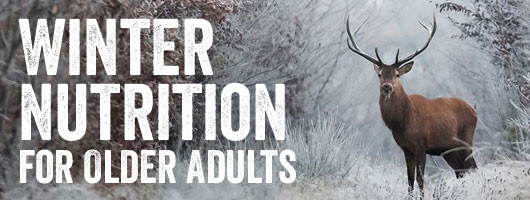
By Kirk Brechbiel
Even in the best of times, older adults are at risk of nutritional deficits due to many factors, including loss of appetite, problems chewing or swallowing, or a need to reduce fat and sugar with certain chronic conditions. Now with the winter months upon us, colds, flu and risk of injuries are at their highest. The nutritional needs of older adults are at an increased risk of suffering. Here are some tips for better nutrition for older adults:
Increase vegetables and fruits. The fiber, vitamins, and enzymes present in fresh plants is the best choice for all of us. Steaming the vegetables so that they are softer for those with dental issues is easy to do.
Go for the grain. When making decisions about which breads to choose, always go for one higher in whole grains.
Stay hydrated. It is important for all bodily processes to drink fluids throughout the day.
Make lunch the big meal of the day. We all actually need more calories earlier in the day. Often by dinner, many older adults are too tired to finish meals.
Don't skip meals. Skipping a meal usually makes someone eat more at the following meal and can drop blood sugars causing dizziness. If not hungry, it is better to eat a little than to skip.
Eat small meals more often. It is better for most older adults to eat 5-6 small meals a day. This reduces the highs and lows of insulin levels, and encourages more calorie intake for those who have lost their appetites.
Eat with your loved one. No one likes to eat alone.
Don’t rush. It is especially important for digestion to eat slowly.
By following these tips all winter, you will be ready and energized for those spring chores.
For more information on aging issues or to find in-home care for a loved one contact Ella Home Care at 717-963-7280 or www.ellahc.com.



